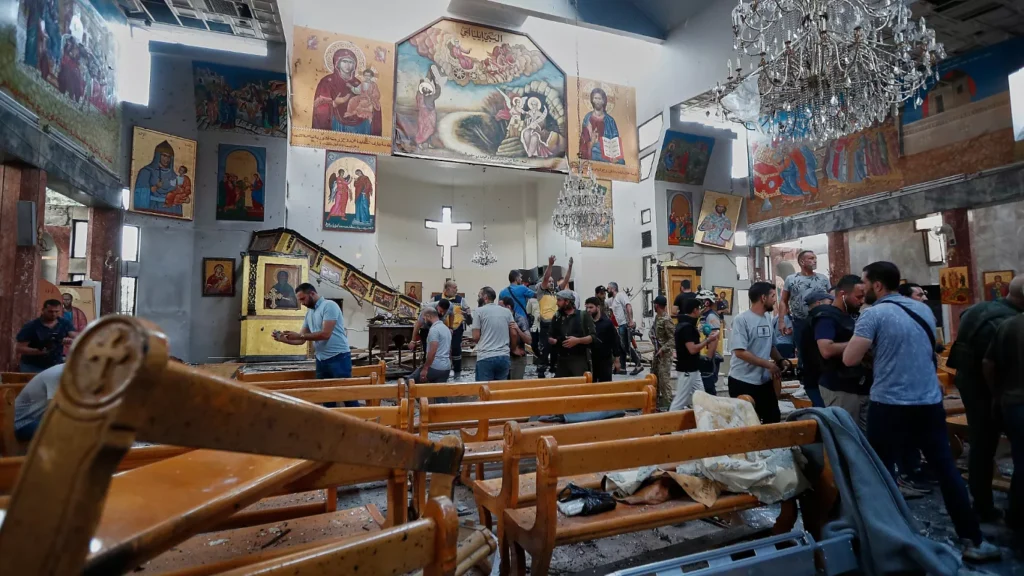WEBDESK: A devastating attack struck the Mar Elias Greek Orthodox Church in the Dweil’a suburb of Damascus, Syria on June 22, 2025, when a suicide bomber opened fire and detonated an explosive vest during evening prayers. Syrian state media confirmed at least 22 people were killed and 52 others injured.
Local Syrian witnesses reported that the assailant entered the crowded church, fired several shots, and then detonated the bomb near the entrance. Some accounts describe a second man being involved in the attack. According to Syrian Interior Ministry officials, the bomber was affiliated with the Islamic State, though no group has openly claimed responsibility.
Emergency teams—including the White Helmets—rushed to the scene amid scenes of devastation: shattered pews, bloodied floors, and distraught worshippers. Some children were among the casualties.
Syrian President Ahmad al‑Sharaa condemned the “terrorist act” and vowed increased protective measures for religious minorities as Syria navigates a fragile post-Assad transition. International responses poured in: the Greek foreign ministry decried the violence, urging authorities to protect Christian communities; the U.N. Special Envoy called for a full investigation.
“We unequivocally condemn the abhorrent terrorist suicide bombing at the Mar Elias Greek Orthodox Church in Damascus, Syria,” the Greek foreign ministry said in a statement.
“We demand that the Syrian transitional authorities take immediate action to hold those involved accountable and implement measures to guarantee the safety of Christian communities and all religious groups, allowing them to live without fear.”
Islamic State had previously targeted religious minorities, including a major attack on Shiite pilgrims in Sayeda Zainab in 2016 — one of the most notorious bombings during Assad’s rule.
The latest assault underscores the group’s continued ability to exploit security gaps despite the collapse of its territorial control and years of counterterrorism efforts.


